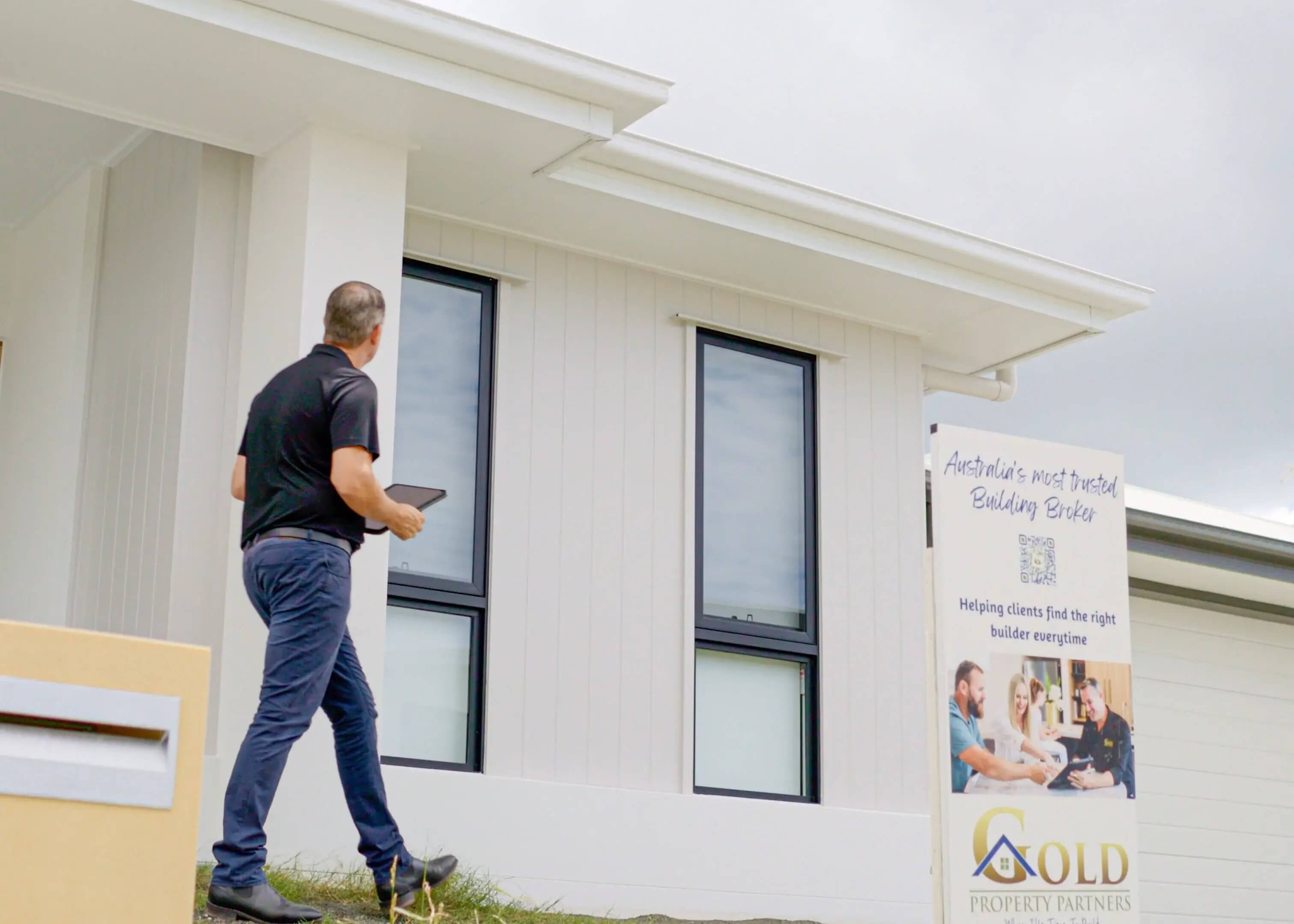15 Aug 2016
10 Items You Need To Tick Off Before You Buy An Investment Property
Buying an investment property is an exciting experience and whether it is your 1st or your 20th, that feeling of pride and satisfaction in your accomplishment is always there. We talk a lot about the upfront achievement of buying an investment property and the feeling you get, however if you don’t spend the time preparing for that purchase and getting all of your ducks lined up BEFORE you sign that contract then that joyful feeling can become an expensive and sometimes financially painful series of oversights down the track.
Here are some points of interest that you should consider and tick off before you go signing that contract. If you get these items in order first then you are far more likely to have a smoother investment experience.
HAVE A PLAN – “No one ever plans to fail they only fail to plan” we have all heard the saying and in 99% of the time it is true. However when speaking with clients it is still alarming the number of investors who have no idea how they intend to run their investment. Simply wanting to buy an investment property is not enough these days. You must have a plan as to how you are going to manage that investment into the future.
GET SOME ADVICE – this is going to be a huge investment and whilst it is cheaper to rely on the advice of a mate who has done it all before, it is also a terrible risk. Loan structure, taxation and purchase entity among other items are things that need to be addressed for you to maximise your return. So even if it means shelling out a few dollars to get some professional advice from your accountant or planner.
AVOID CROSS-COLLATERALIZATION – This is where the lender will take a mortgage over one or more properties to access the equity in lieu of a cash deposit. Whilst in some cases that is the only way to make a loan work, you should attempt, where possible to only have one property as security per loan. If at any time you wish to dispose of an asset the bank may ask you to sell all the securities attached to that loan to satisfy their exposure and this may not be inline with your plan.
PROTECT YOUR CASH FLOW – You are about to make another sizeable purchase that is going to increase your monthly debt commitments. Unfortunately most people will insure the car and even the family pet before they think about insuring themselves. Remember you are only able to make this purchase because you can service the debt. If you have an accident or are taken ill and are unable to work, will you be able to pay the debt if the house is not rented? If the answer is “no” then you need to have this taken care of. Your investment strategy is for 7-10 years in most cases and it can be all bought undone by that unforeseen accident that had you laid up for 6 months. On top of that the last thing you want to be doing is stressing about your finances when you are trying to get better.
UNDERSTAND WHAT THE MARKET IS CHARGING – On a $350k mortgage overpaying even .15% is going to cost you over $13k over the life of the loan. That is $13k less you will have in your bank when it comes time to sell. My advice is do one of two things here.
i) Use a good reputable broker to make sure you are getting exposed to all the right rates and options. Their job is to find you the best deal so put them to work.
ii) If you are going to stay with your current bank and handle the process yourself then do some ringing around and understand what other financial institutions are charging and put it to your banker to beat it. They want to keep you business in this market so make them work for it.
HAVE A SLUSH FUND – Your investment contains with in it a lot of moving parts that are being exposed to use and the weather each day. Not if, BUT when something breaks it will need to be tended to quickly to keep you from being in breach of your tenancy agreement. To be prepared for this it is good to have $1-$2K available to place towards the repairs. Some repairs will be covered by insurance and your excess will be less than this however wear and tear is not, so having funds available to get that item repaired quickly is a good idea
INTEREST ONLY OR PRINCIPLE AND INTEREST?? – It seems this is a heavily debated topic amongst investors. Are you banking on capital growth to sell at a profit down the track or are you trying to create a cash flow for retirement in which case you need the asset to be debt free. Either way having the least amount of required servicing each month will improve your borrowing power if another great buy comes along as well as reduce the pressure to meet loan repayments if you hit tougher times. My suggestion is to set the loans on interest only but make the repayments you would be committed to under the P&I repayment schedule. Most loans will allow you to do that these days and you will achieve the same outcome as if you were on P&I without being committed to the higher payment. Also if you have a redraw, then the extra you paid can be used if times get tough or a portion of it can act as your slush fund.
BUY IN THE RIGHT ENTITY – So you are now earning a good household income and have decided to start growing your wealth through an investment home. If you buy a home you also get the tax breaks and if you sell it for a profit happy days, right? WRONG! Too many investors go out and sign contracts to purchase in their own names before understanding how it impacts them financially across the board. That means they are not using a trust or the like to make that purchase. Sometimes this fine but not always. In some cases where one partner is making more money then the other (in the case of a stay home parent) then you are likely to set yourself up to pay more tax now or down the line than you need to. Also you have not separated your personal wealth from the investment and in the case of a legal claim against you as the owner, your entire personal wealth can come into play. So ask your accountant before you sign the contract about what is the best option for you.
HAVE A TEAM – I have mentioned in one of my other articles that having a team is the best approach to getting the outcome that you are chasing. However it is important to have a think about who you are going to use for each role before you get knee deep in the process. Make some phone calls and meet some professionals to ensure you have your team ready to go before you start. This means, Buyers Agent, Broker, Accountant, Solicitor, Quantity Surveyor and Property Management team. This will also mean you have a firm grip in initial costs and can budget accordingly.
REDUCE YOUR PERSONAL EXPOSURE – In many cases for investors you are making the decision to purchase because you are now financially stable with equity and earnings to do so. However for first homebuyers in particular it is not always the case and although you are now earning enough it may help to tidy up your finances before you speak to your broker/lender. Doing things like cancelling any unused credit cards or store cards will increase your borrowing power as the lenders will take into account the amount of limits you have, even if you are not using them. Also look to consolidate any debts you have into one loan. This will reduce your overall monthly commitment and increase your borrowing capacity, but make sure you get right back onto paying that debt down once you are into your home and settled as you have just reset the clock on the interest portion of that money owed and that will cost you more in the long run.
Like I said purchasing your 1st, 2nd or 20th home is a great moment, so enjoy the process and make sure you are well prepared so you can enjoy the investment for years to come.
If you would like some help getting into that new property then please contact me directly on 0412 158 870 or like our page on FB https://www.facebook.com/GoldPropertyPartners/
Cheers,
Tim Gold
Director








